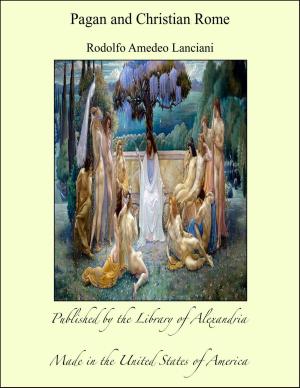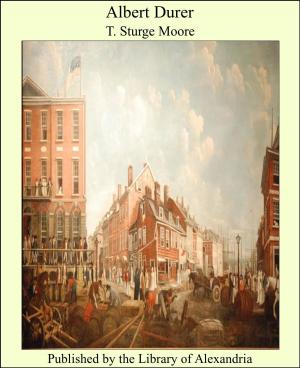The Kickleburys on the Rhine
Nonfiction, Religion & Spirituality, New Age, History, Fiction & Literature| Author: | William Makepeace Thackeray | ISBN: | 9781465540034 |
| Publisher: | Library of Alexandria | Publication: | March 8, 2015 |
| Imprint: | Language: | English |
| Author: | William Makepeace Thackeray |
| ISBN: | 9781465540034 |
| Publisher: | Library of Alexandria |
| Publication: | March 8, 2015 |
| Imprint: | |
| Language: | English |
Any reader who may have a fancy to purchase a copy of this present edition of the “History of the Kickleburys Abroad,” had best be warned in time, that the Times newspaper does not approve of the work, and has but a bad opinion both of the author and his readers. Nothing can be fairer than this statement: if you happen to take up the poor little volume at a railroad station, and read this sentence, lay the book down, and buy something else. You are warned. What more can the author say? If after this you WILL buy,—amen! pay your money, take your book, and fall to. Between ourselves, honest reader, it is no very strong potation which the present purveyor offers to you. It will not trouble your head much in the drinking. It was intended for that sort of negus which is offered at Christmas parties and of which ladies and children may partake with refreshment and cheerfulness. Last year I tried a brew which was old, bitter, and strong; and scarce any one would drink it. This year we send round a milder tap, and it is liked by customers: though the critics (who like strong ale, the rogues!) turn up their noses. In heaven’s name, Mr.Smith, serve round the liquor to the gentle-folks. Pray, dear madam, another glass; it is Christmas time, it will do you no harm. It is not intended to keep long, this sort of drink. (Come, froth up, Mr. Publisher, and pass quickly round!) And as for the professional gentlemen, we must get a stronger sort for THEM some day. The Times’ gentleman (a very difficult gent to please) is the loudest and noisiest of all, and has made more hideous faces over the refreshment offered to him than any Other critic. There is no use shirking this statement! when a man has been abused in the Times, he can’t hide it, any more than he could hide the knowledge of his having been committed to prison by Mr. Henry, or publicly caned in Pall Mall. You see it in your friends’ eyes when they meet you. They know it
Any reader who may have a fancy to purchase a copy of this present edition of the “History of the Kickleburys Abroad,” had best be warned in time, that the Times newspaper does not approve of the work, and has but a bad opinion both of the author and his readers. Nothing can be fairer than this statement: if you happen to take up the poor little volume at a railroad station, and read this sentence, lay the book down, and buy something else. You are warned. What more can the author say? If after this you WILL buy,—amen! pay your money, take your book, and fall to. Between ourselves, honest reader, it is no very strong potation which the present purveyor offers to you. It will not trouble your head much in the drinking. It was intended for that sort of negus which is offered at Christmas parties and of which ladies and children may partake with refreshment and cheerfulness. Last year I tried a brew which was old, bitter, and strong; and scarce any one would drink it. This year we send round a milder tap, and it is liked by customers: though the critics (who like strong ale, the rogues!) turn up their noses. In heaven’s name, Mr.Smith, serve round the liquor to the gentle-folks. Pray, dear madam, another glass; it is Christmas time, it will do you no harm. It is not intended to keep long, this sort of drink. (Come, froth up, Mr. Publisher, and pass quickly round!) And as for the professional gentlemen, we must get a stronger sort for THEM some day. The Times’ gentleman (a very difficult gent to please) is the loudest and noisiest of all, and has made more hideous faces over the refreshment offered to him than any Other critic. There is no use shirking this statement! when a man has been abused in the Times, he can’t hide it, any more than he could hide the knowledge of his having been committed to prison by Mr. Henry, or publicly caned in Pall Mall. You see it in your friends’ eyes when they meet you. They know it















